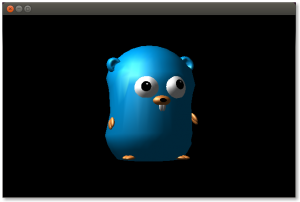UPDATE: The contest result is out.
A couple of weeks ago a probe message was sent to a few places questioning whether there would be enough interest on a development contest involving Go QML applications. Since the result was quite positive, we’re moving the idea forward!

This blog post provides further information on how to participate. If you have any other questions not covered here, or want technical help with your application, please get in touch via the mailing list or twitter.
Eligible applications
Participating applications must be developed in Go with a graphic interface that leverages the qml package, and must be made publicly available under an Open Source license approved by the OSI.
The application may be developed on Linux, Mac OS, or Windows.
Review criteria
Applications will be judged under three lenses:
- Quality
- Features
- Innovation
We realize the time is short, so please submit even if you haven’t managed to get everything you wanted in place.
Deadline
All submissions should be made before the daylight of the Monday on April 21st.
Sending the application
Applications must be submitted via email including:
- URL for the source code
- Build instructions
If necessary for judging, a screencast may be explicitly requested, and must be provided before the daylight of Wednesday 23rd.
Prizes
There are two prizes for the winner:
- A Nexus 7 2013 tablet, running Ubuntu Touch (nice for Go QML)
- A rare and much-desired vinyl Gopher
Judging and announcement
Judging will be done by well known developers from the Go community, and will take place during GopherCon. The result will be announced during the conference as well, but the winner doesn’t have to be in the conference to participate in the contest.
Learning more about Go QML
The best places to start are the package documentation and the mailing list.
Are Ubuntu touch qml apps powered by Go eligible? I mean can developers use Ubuntu’s QML components?
Yes, using stock components, whether from Ubuntu or not, is fine.